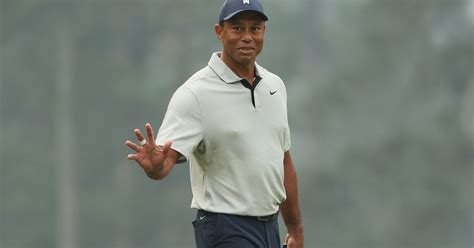
Golden State Warriors G League affiliate Santa Cruz Warriors head coach Joe Mullin delivered a profanity-laced tirade during a timeout, publicly criticizing his team’s lack of effort and star players’ slow starts in a recent game. The outburst, captured on video, highlights the intense pressure and high expectations within the Warriors organization, even at the developmental level.
SANTA CRUZ, Calif. – Santa Cruz Warriors head coach Joe Mullin unleashed a fiery, expletive-laden rebuke of his team during a timeout, demanding greater intensity and effort from his players, particularly the team’s perceived stars. The incident, captured on video and widely circulated, provided a raw glimpse into the demanding atmosphere within the Golden State Warriors’ development system.
The Warriors’ G League affiliate was struggling during the game when Mullin called a timeout and berated his players. The video, originally obtained by sports blog “Dubs on Tap,” shows Mullin addressing his team with forceful language, saying, “Fing stars don’t start fing soft. Do we understand that? Is that hard to fing comprehend? I don’t give a f who you are, step the f up. It’s every fing day. Every fing day I gotta get on you guys to play hard. This is my fing job? To get you guys to f***ing play hard?”
Mullin’s passionate outburst underscores the organization’s commitment to a high standard of performance at every level, reflecting the championship pedigree instilled by the Golden State Warriors. While the language used might be considered harsh by some, it’s indicative of the urgency and accountability that Mullin is trying to foster within his team. The context of the tirade is important; the Santa Cruz Warriors are not merely a collection of young players vying for NBA opportunities, but an extension of the Warriors’ culture and philosophy.
The Santa Cruz Warriors serve as a crucial developmental ground for young talent, including players on two-way contracts with the Golden State Warriors and those hoping to earn a call-up to the NBA. Mullin’s role extends beyond simply coaching basketball; he’s tasked with instilling the work ethic, discipline, and competitive fire necessary to succeed at the highest level. The pressure to develop players who can contribute to the Warriors’ championship aspirations is considerable, which may have contributed to Mullin’s frustration.
The video of Mullin’s tirade quickly went viral, sparking debate among fans and analysts. Some criticized Mullin’s language as unprofessional and potentially damaging to the players’ confidence. Others defended his approach, arguing that it’s necessary to hold players accountable and instill a sense of urgency in a highly competitive environment. The incident raises broader questions about the line between demanding coaching and potentially abusive behavior, particularly in the context of player development.
The Golden State Warriors organization has not officially commented on the incident. However, it’s likely that the team’s management is aware of the situation and will address it internally. The Warriors have a strong organizational culture that emphasizes accountability and continuous improvement, but they also prioritize player well-being and development. The handling of this situation will be a test of the organization’s ability to balance these competing priorities. It is also worth noting that the specific players involved have not been publicly identified, which further complicates any assessment of the impact of Mullin’s words. The focus remains on the overall message and the coaching style employed.
Mullin’s outburst serves as a reminder of the immense pressure facing coaches at all levels of professional sports. The expectations to win, develop players, and maintain a positive team environment can be overwhelming. While his methods may be unconventional, Mullin’s passion for the game and his desire to see his players succeed are undeniable. The long-term impact of this incident remains to be seen, but it has undoubtedly sparked a conversation about coaching styles, player development, and the expectations placed on young athletes striving to reach the NBA.
The Role of the G League
The NBA G League (formerly the NBA Development League or D-League) is the NBA’s official minor league organization. It serves multiple purposes, including player development, scouting, and experimentation with new rules. For young players, the G League offers a platform to hone their skills, gain experience in a professional environment, and showcase their talent to NBA scouts and coaches. It’s a critical stepping stone for many players hoping to make the jump to the NBA.
The G League also benefits NBA teams by allowing them to develop players within their own system. Teams can assign players on their NBA roster to their G League affiliate to get more playing time and work on specific aspects of their game. Two-way contracts allow players to move freely between the NBA and G League, providing flexibility for teams to manage their roster and develop young talent.
The Santa Cruz Warriors are one of the G League’s most successful franchises, both on and off the court. They have a strong track record of developing players who have gone on to have successful NBA careers. The team’s close relationship with the Golden State Warriors is a key factor in their success, as they share coaching philosophies, training methods, and player development strategies.
Coaching Styles and Player Development
The debate surrounding Mullin’s coaching style highlights the different approaches to player development. Some coaches prefer a more nurturing and supportive approach, focusing on building players’ confidence and providing positive reinforcement. Others adopt a more demanding and critical approach, pushing players to their limits and holding them accountable for their mistakes.
There is no single “right” way to coach, and the most effective approach often depends on the individual player and the specific situation. Some players respond well to tough love, while others thrive in a more supportive environment. The best coaches are able to adapt their style to meet the needs of their players and create a culture of continuous improvement.
However, it’s crucial to distinguish between demanding coaching and potentially abusive behavior. Coaching should always be constructive and focused on helping players improve, even when delivering criticism. It should never involve personal attacks, humiliation, or any form of emotional or physical abuse. The line between demanding coaching and abusive behavior can sometimes be blurred, but it’s essential for coaches to be aware of their impact on players and to prioritize their well-being.
The Impact on Player Morale and Performance
Mullin’s tirade could potentially have both positive and negative impacts on player morale and performance. On one hand, it could serve as a wake-up call for players who are not performing up to their potential. It could motivate them to work harder, focus more intently, and hold themselves to a higher standard. The intensity and passion of Mullin’s message could resonate with some players and inspire them to elevate their game.
On the other hand, Mullin’s outburst could damage player morale and create a negative team environment. The harsh language and public criticism could undermine players’ confidence and make them hesitant to take risks. It could also create a sense of fear and resentment towards the coach, making it difficult for players to trust him and buy into his message. The potential for negative impact is amplified if the criticism is perceived as unfair or directed at specific individuals without justification.
The key factor in determining the impact of Mullin’s tirade will be the players’ perception of his intentions and the overall team dynamic. If players believe that Mullin is genuinely trying to help them improve and that his criticism is coming from a place of care, they may be more likely to respond positively. However, if they perceive him as being overly critical, unfair, or disrespectful, the outburst could backfire and have a detrimental effect on team morale and performance.
The Broader Context of Coaching in Professional Sports
Mullin’s situation is not unique in the world of professional sports. Coaches at all levels face immense pressure to win, develop players, and maintain a positive team environment. The demands of the job can be overwhelming, and coaches often find themselves under intense scrutiny from fans, media, and team management.
The pressure to succeed can lead some coaches to employ unconventional or even controversial methods. Some coaches are known for their fiery personalities and their willingness to publicly criticize their players. Others prefer a more reserved and diplomatic approach. There is no single formula for success, and coaches must find a style that works for them and their team.
However, it’s essential for coaches to remember that their primary responsibility is to develop players and create a positive learning environment. While winning is important, it should not come at the expense of player well-being. Coaches should always strive to treat their players with respect, even when delivering criticism, and to create a culture of accountability and continuous improvement.
FAQ: Joe Mullin’s Timeout Tirade
-
What did Joe Mullin say during the timeout? Joe Mullin used expletive-filled language to criticize his team’s lack of effort and intensity, specifically addressing the “stars” on the team for starting “soft.” He emphasized the need for consistent hard work and questioned whether it was his job to constantly motivate them.
-
Why did Joe Mullin deliver the tirade? Mullin’s outburst stemmed from his frustration with the team’s perceived lack of effort and intensity. He likely felt that the players were not living up to their potential and that they needed a strong message to motivate them to perform at a higher level. The pressure of developing players for the Warriors organization could also be a contributing factor.
-
What is the Golden State Warriors organization’s response to the incident? As of the current reporting, the Golden State Warriors organization has not issued an official statement regarding Mullin’s tirade. It is expected that they will address the situation internally, considering the organization’s emphasis on accountability and player well-being.
-
What are the potential consequences of Mullin’s actions? The consequences could range from internal disciplinary action from the Warriors organization to a broader reassessment of coaching styles within the G League. The impact on player morale and performance is also a key concern. It is also possible that the incident will be viewed as an isolated event and have no lasting impact.
-
What does this incident say about coaching styles in professional sports? Mullin’s tirade highlights the diverse range of coaching styles in professional sports. It raises questions about the line between demanding coaching and potentially abusive behavior, and it underscores the importance of finding a balance between accountability and player well-being. The incident has spurred a broader conversation about effective coaching methods and the impact of coaches on young athletes.
Expanded Analysis and Context:
The incident involving Joe Mullin transcends a simple timeout outburst; it serves as a microcosm of the intense pressures and conflicting philosophies within the world of professional sports, particularly in developmental leagues like the NBA G League. Mullin’s actions must be examined through multiple lenses, including the G League’s role in player development, the evolving understanding of effective coaching styles, the mental and emotional impact on players, and the overarching culture of accountability fostered by the Golden State Warriors organization.
Firstly, the G League is not merely a repository for players who haven’t made it to the NBA. It is a sophisticated developmental system designed to cultivate talent and prepare players for the unique demands of the NBA game. Players are there for various reasons: some are on two-way contracts, oscillating between the G League and the NBA; others are draft picks needing seasoning; and still others are undrafted free agents hoping to catch the eye of an NBA scout. This diverse mix creates a highly competitive environment where players are constantly vying for attention and opportunity. Mullin, as the head coach of the Santa Cruz Warriors, is tasked with managing this environment and extracting the best possible performance from his players. His job is not only to teach basketball skills but also to instill the work ethic, discipline, and mental fortitude required to succeed at the highest level.
Secondly, the concept of “effective coaching” has undergone a significant transformation in recent years. The old-school, authoritarian style, characterized by harsh criticism and relentless demands, is increasingly being challenged by more player-centric approaches that prioritize communication, empathy, and positive reinforcement. The shift reflects a growing awareness of the importance of mental health and emotional well-being in athletic performance. While some players may respond positively to tough love, others may be more effectively motivated through encouragement and constructive feedback. The challenge for coaches is to understand the individual needs of their players and adapt their style accordingly. Mullin’s tirade can be interpreted as a relic of the old-school approach, but it’s also possible that it was a calculated attempt to jolt his players out of complacency. Without further context, it’s difficult to definitively label his actions as inappropriate or ineffective.
Thirdly, the mental and emotional impact of Mullin’s words on the players cannot be ignored. Public criticism, especially when delivered in a harsh and demeaning manner, can be incredibly damaging to a player’s confidence and self-esteem. It can create a climate of fear and anxiety, making players hesitant to take risks or make mistakes. This, in turn, can stifle creativity and hinder their development. On the other hand, some players may thrive under pressure and respond positively to a coach who demands excellence. They may view Mullin’s tirade as a sign that he believes in their potential and is pushing them to reach it. Ultimately, the impact of Mullin’s words will depend on the individual personalities and resilience of the players, as well as the overall team dynamic. A healthy team culture, characterized by trust, respect, and open communication, can help mitigate the negative effects of harsh criticism.
Fourthly, the Golden State Warriors organization is known for its strong culture of accountability and continuous improvement. This culture is instilled from the top down, starting with the ownership and management and extending to the coaching staff and players. The Warriors have achieved unprecedented success in recent years by fostering a relentless pursuit of excellence and a willingness to challenge conventional wisdom. This culture of accountability undoubtedly influences the Santa Cruz Warriors, who are expected to mirror the same values and standards. Mullin’s tirade can be seen as an extension of this culture, a way of holding his players accountable for their performance and demanding that they meet the organization’s high expectations. However, it’s crucial to ensure that this culture of accountability does not cross the line into a toxic environment that stifles creativity and undermines player well-being.
Finally, the incident highlights the complex relationship between coaches and players in professional sports. Coaches are tasked with motivating, developing, and managing players, while also navigating the pressures of winning and satisfying the demands of team management. Players, on the other hand, are expected to perform at a high level, adhere to the coach’s instructions, and contribute to the overall success of the team. This dynamic can be fraught with tension and conflict, especially in a highly competitive environment like the G League. Effective communication, mutual respect, and a shared understanding of goals are essential for building a successful coach-player relationship. Mullin’s tirade serves as a reminder of the importance of these factors and the potential consequences of failing to foster a positive and productive working environment. The organization’s response to this incident will be telling in determining the balance of supporting their coaches, and the overall well-being of players who are actively trying to reach the next level.
In conclusion, the “Mullin’s Timeout Tirade” incident is a multifaceted event that raises important questions about coaching styles, player development, and the culture of accountability in professional sports. While the language used by Mullin was undoubtedly strong and may be considered inappropriate by some, it’s crucial to consider the context of the situation and the broader implications for player development and team dynamics. The long-term impact of this incident remains to be seen, but it has undoubtedly sparked a valuable conversation about the challenges and responsibilities of coaching in the modern era.









